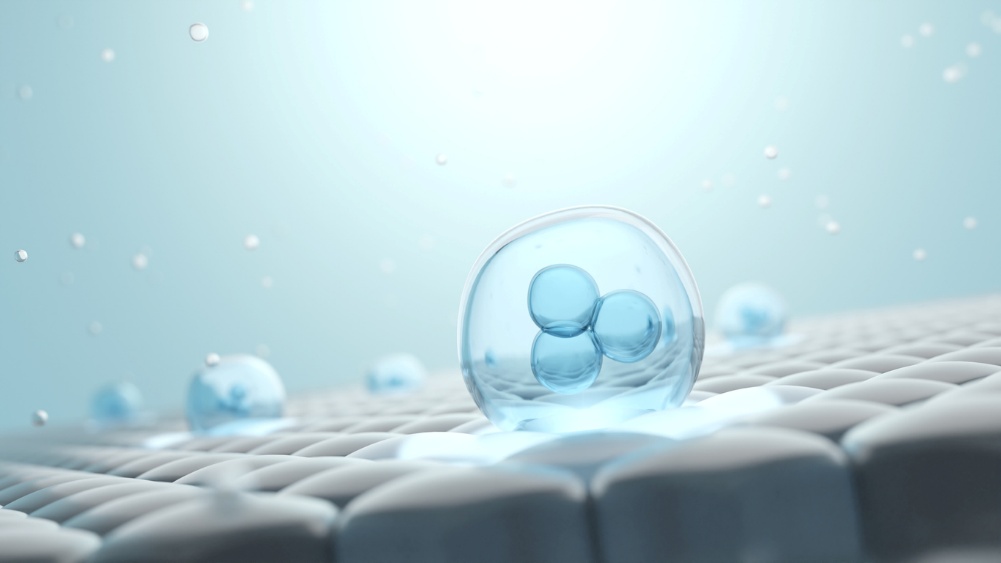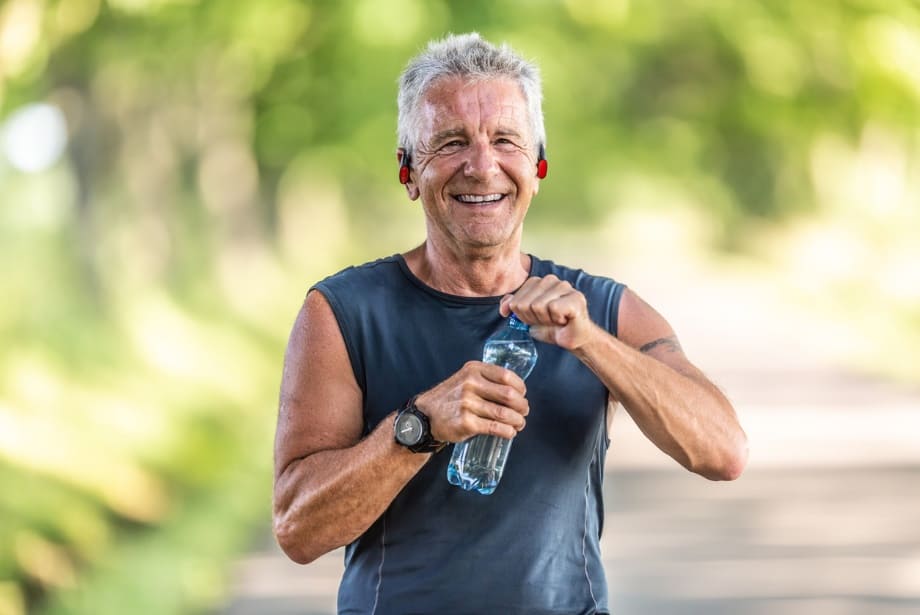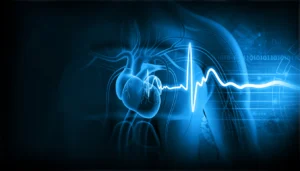If you are not actively monitoring and improving your hydration habits, you may be unknowingly accelerating the aging process.
Why Hydration Is a Critical Longevity Lever

Water is not just something you drink when you are thirsty. It is the foundation of every biological function in the body. From circulating blood to detoxifying cells, from regulating temperature to generating energy, water is central to life—and to longevity.
Focusing on hydration and aging means understanding how proper water intake supports:
- Cellular detoxification: Water helps remove waste products from cells, reducing toxic load and improving cellular efficiency.
- Joint lubrication: Hydrated cartilage cushions joints and prevents stiffness or pain.
- Nutrient delivery: Blood is mostly water, and water ensures that oxygen and nutrients are delivered to every organ.
- Temperature regulation: Hydration keeps your internal thermostat balanced, especially during exercise or heat exposure.
- Emotional and cognitive clarity: Even mild dehydration can lead to brain fog, irritability, and decreased concentration.
Staying hydrated is one of the easiest, most accessible ways to support core functions essential for aging well, from joint health to mental clarity.
How Dehydration Accelerates Aging
Dehydration does not always show up as intense thirst. Often, it appears subtly through fatigue, irritability, dry skin, or slower recovery after workouts. Over time, these small signals can develop into bigger issues.
Chronic dehydration accelerates aging by contributing to:
- Oxidative stress: Without enough water, cells produce more free radicals, which damage DNA and promote aging.
- Organ strain: The kidneys and cardiovascular system work harder when fluids are low, increasing the risk of high blood pressure or chronic kidney disease.
- Mental decline: Dehydration has been linked to poor memory, slower processing speed, and a greater risk of cognitive disorders.
- Circulatory problems: Thicker, more viscous blood can increase the risk of blood clots, heart disease, and stroke.
- Skin aging: When your skin lacks hydration, it loses elasticity, becomes more prone to fine lines, and appears dull or saggy.
The takeaway? Over time, poor hydration can shorten your health span even more than poor nutrition. According to the National Institute on Aging, dehydration in older adults is a growing concern that can speed up aging and lead to serious health issues.
The Age-Hydration Connection
Aging changes the way the body perceives and responds to your hydration needs. You may feel less thirsty, even when your body desperately needs water. This disconnect can lead to chronic dehydration in seniors, putting them at higher risk for fatigue, confusion, and health complications tied to aging and fluid imbalance.
Key changes that affect hydration and aging include:
- Lower muscle mass: Muscle tissue stores water. As muscle declines with age, so does the body’s fluid reserve.
- Declining kidney function: Kidneys lose some efficiency, making it harder to retain and manage hydration levels.
- Medication side effects: Many medications, including diuretics and blood pressure drugs, increase fluid loss.
- Weakened thirst signals: The brain becomes slower to detect dehydration, causing you to drink less than necessary.
This means that older adults need to be proactive—not reactive—about fluid intake. Hydration must be a conscious, daily practice.
7 Proven Benefits of Hydration for Healthy Aging and Longevity
Hydration impacts nearly every area of aging well. Here are seven essential ways proper hydration enhances health span and delays age-related decline:
- Cognitive Health in Aging Adults: Hydration maintains healthy brain function, helping preserve memory, focus, and mood regulation. Studies have shown that even a 1–2% fluid loss can impair cognitive performance.
- Temperature Control: As we age, our ability to regulate body temperature diminishes. Proper hydration helps prevent overheating, heatstroke, and chronic fatigue, especially important in hot environments or during exercise.
- Joint and Muscle Function: Hydrated connective tissue improves flexibility, reduces pain, and decreases the risk of injury. This is essential for maintaining mobility and independence in later years.
- Digestive Efficiency: Water is required to produce digestive enzymes and support nutrient absorption. It also prevents constipation, a common issue among aging populations.
- Detoxification: The lymphatic system and kidneys rely on water to flush waste and metabolic byproducts. Poor hydration increases toxin buildup, which stresses every system in the body.
- Skin Integrity: Hydrated skin is more resilient, elastic, and resistant to injury. Water helps preserve the skin’s barrier function, reducing signs of aging and susceptibility to infections.
- Chronic Disease Prevention: Hydration lowers the risk of conditions like high blood pressure, kidney stones, urinary tract infections, and even some metabolic disorders.
Everyday Habits That Disrupt Hydration in Older Adults

People often associate hydration with drinking water—but what you do throughout the day can either support or sabotage that goal. Common hydration-disrupting habits include:
- Consuming caffeine or alcohol: Both act as diuretics and increase fluid loss.
- Eating processed, salty foods: These increase the body’s need for water to process excess sodium.
- Ignoring thirst cues: Many individuals wait too long to drink, and older adults may not feel thirsty even when dehydrated.
- Skipping hydration during physical activity or daily exercise: Physical exertion increases fluid demand, and not replacing it compounds fatigue and recovery time.
- Poor fluid timing: Drinking substantial amounts at once instead of consistently throughout the day can lead to poor absorption and frequent urination.
By being aware of these behaviors, you can take intentional steps to support hydration and aging goals.
The Best Water for Hydration: Why Reverse Osmosis Water
Not all water is equal when it comes to supporting long-term health and cellular repair. At Forbes Longevity Center, we recommend reverse osmosis (RO) water as the ideal choice whenever available. Here’s why:
- Superior contaminant removal: RO systems filter up to 99% of dissolved solids, heavy metals, chlorine, fluoride, and other impurities—leaving you with exceptionally clean water.
- Better hydration support: With fewer contaminants, RO water is easier for the body to absorb and use efficiently, helping support detoxification, nutrient delivery, and overall hydration.
- Consistent quality: Unlike tap water, which varies by region, RO water provides a reliable source of clean hydration, especially important for older adults whose kidneys, joints, and skin need optimal support.
Where to Find RO Water
Getting access to high-quality RO water is easier than you might think. Here are several options:
- Home RO systems: Install an under-sink or countertop RO unit to have a constant supply of purified water at home. These systems are widely available and ideal for long-term use.
- Grocery store refill stations: Many supermarkets and health food stores offer self-serve RO water refill stations or pre-filled jugs labeled “purified by reverse osmosis.”
- Water delivery services: Companies like Culligan, Primo, and Sparkletts deliver RO water in 3- or 5-gallon jugs, often along with water coolers for home or office use.
- Outdoor vending machines: Brands like Glacier and Primo operate vending stations outside major retailers, letting you refill containers with RO-filtered water conveniently.
If RO water isn’t accessible, opt for a high-quality filtration system or certified spring water that’s been tested for purity. The goal is clean, contaminant-free water that lets your body focus on hydration—not detoxifying from unwanted chemicals.
How Forbes Longevity Center Helps You Hydrate Smarter
At Forbes Longevity Center, we do not address hydration as an afterthought—it is a core part of your personalized longevity strategy. During your comprehensive assessment, we analyze your hydration status.
We help you move beyond generic advice like “drink more water” and instead give you data-driven, tailored strategies that support both hydration and healthy aging.
Water Is Life—And Longevity

Water may be the most underrated tool for promoting longevity and healthy aging at your disposal. Optimizing hydration and aging is not just about preventing dehydration, it is about giving your body the support it needs to thrive as you age. From brain function and skin health to joint mobility and disease prevention, the benefits of proper hydration are far-reaching.
At Forbes Longevity Center, we work with you to develop practical, sustainable hydration strategies based on science and personalized data. When you hydrate with intention, you live with more clarity, vitality, and resilience.
Are you ready to hydrate smarter and age stronger?
Learn more about our full suite of services, contact Forbes Longevity Center today to discover how a science-backed approach to hydration and aging can help you extend your health span, protect your brain, and feel your best—at every stage of life.
900 Carillon Parkway, Suite 201
St. Petersburg, FL 33716
Phone: 727-299-9222
Fax: 727-299-9322



